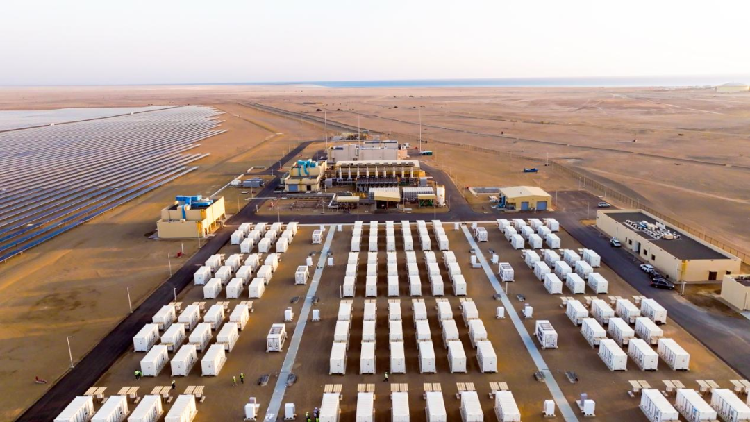How is China Influencing a Fair and Equitable Global Governance System?
What role is China playing in the development of a fair and equitable global governance system?

This cutting-edge system combines renewable energy harnessed from wind and solar turbines with facilities that include a seawater desalination plant and a waste management center, forming a self-sufficient energy supply system for the city.
Initiated in July 2017, Neom's energy storage initiative is a fundamental aspect of Saudi Arabia's "Vision 2030" program. The project aims to equip Neom with 100 percent clean energy, and once fully operational, it is projected to produce up to 650,000 MWh of renewable energy each year, achieving zero carbon emissions—a reduction equivalent to nearly 500,000 tonnes of CO2 annually.
Saudi Arabia has embarked on an ambitious goal to raise the proportion of renewable energy in its national energy mix to 50 percent by the year 2030.
In recent years, China has undertaken numerous green projects in collaboration with various countries, leveraging its expertise and experience in renewable energy to bolster global sustainable development and enhance the green governance of the global economic system.
Speaking at Session II of the 19th G20 Summit on Reform of Global Governance Institutions on Monday, Chinese President Xi Jinping emphasized the importance of establishing a just and equitable global governance framework. He urged G20 members to enhance global economic governance and improvements across global financial, trade, and digital sectors to foster an open, innovative, green, and stable world economy.
China has consistently championed free trade and globalization while standing firmly with developing nations, enhancing their development capabilities through initiatives like the Belt and Road Initiative (BRI).
Launched in 2013, the BRI aims to stimulate economic growth and enhance connectivity among participating nations. Since its launch, over 150 countries and 30 international organizations, mostly from the developing world, have entered into cooperation agreements with China.
By constructing essential infrastructure such as railways, highways, ports, power grids, and communication networks, the BRI has significantly upgraded infrastructure in developing countries, thus improving trade efficiency and supporting industrial advancements. The initiative has also created considerable job opportunities and stimulated economic growth, while fostering sustainable development through technology transfer and capacity-building measures, thereby making a significant contribution to global economic inclusivity.
Furthermore, China established the Asian Infrastructure Investment Bank (AIIB) as an inclusive platform for international financial cooperation. Official statistics indicate that since its establishment, the AIIB has financed over 200 projects in more than 30 countries, with total investments surpassing $40 billion, focusing on transportation, energy, water management, and urban development. By offering stable, long-term funding, the AIIB has enhanced infrastructure, facilitated green energy transitions, tackled climate change in developing nations, and contributed to a fairer global economic landscape.
On the subject of global security governance, Xi stated, "Global security governance is part and parcel of global governance." He urged the G20 to support the UN and its Security Council in taking on a more prominent role, advocating for peaceful resolutions to crises.
During his address, he called on the G20 to de-escalate the Ukraine crisis, encourage all parties in the Middle East to cease hostilities, and provide aid for alleviating humanitarian issues and post-war reconstruction in the area.
China has positioned itself as a proactive participant in global security governance by proposing initiatives, mediating conflicts, and fostering dialogue. For instance, in 2022, China introduced the Global Security Initiative, promoting a security framework aligned with the UN Charter and emphasizing cooperation, sustainability, and dialogue to tackle both traditional and emerging security challenges.
In addressing the Ukraine crisis, China put forth a 12-point proposal aimed at resolving the conflict, underlining respect for sovereignty, a call for ceasefire, and a stance against nuclear threats. Collaborating with Brazil and other countries in the Global South, China also formed a "friends for peace" group to facilitate diplomatic resolutions and enhance dialogue.
In the Middle East, China's mediation in the 2023 Saudi-Iran reconciliation effort helped restore diplomatic relations between the two nations, contributing to regional stability. These efforts exemplify China's commitment to resolving disputes through dialogue and its dedication to fostering long-term global peace and stability.
Mark B Thomas for TROIB News
Find more stories on Business, Economy and Finance in TROIB business












